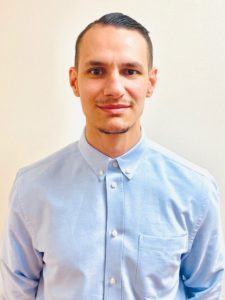
If you or a loved one is struggling with addiction or mental health issues, you may have heard the term “Partial Hospitalization Program” or PHP. This level of care serves as a vital bridge between inpatient treatment and less intensive outpatient services. According to the Substance Abuse and Mental Health Services Administration (SAMHSA), PHPs provide comprehensive treatment services for several hours per day while allowing clients to return home each evening. At Create Recovery Center, we offer comprehensive PHP services designed to provide structured treatment while allowing clients to maintain some independence in their daily lives.
A Partial Hospitalization Program is an intensive, structured treatment option that provides comprehensive therapeutic services during the day while allowing clients to return home in the evenings. According to the American Association for Partial Hospitalization, a PHP is defined as “an outpatient program specifically designed for the diagnosis or active treatment of a serious mental disorder when there is a reasonable expectation of improvement or when it is necessary to maintain a patient’s functional level and prevent relapse or full hospitalization.”
PHPs typically operate five to seven days per week, with treatment sessions lasting approximately 6-8 hours each day. The Substance Abuse and Mental Health Services Administration (SAMHSA) considers programs featuring daily treatment for 6 hours or more as PHPs.
This level of care is more intensive than traditional outpatient programs but less restrictive than 24-hour inpatient care. It’s designed for individuals who:
At Create Recovery Center in Los Angeles, our PHP is tailored to address both addiction and mental health concerns through a trauma-informed approach. Research from the National Institute on Drug Abuse (NIDA) shows that comprehensive treatment addressing both substance use and mental health leads to better outcomes. Our program includes:
Each client receives a thorough evaluation to identify specific needs, challenges, and goals. Our clinical team then develops a personalized treatment plan that addresses both substance use disorders and any co-occurring mental health conditions.
Our PHP incorporates a range of evidence-based therapies to promote healing and recovery:
Many individuals struggling with addiction also face mental health challenges such as anxiety, depression, bipolar disorder, or PTSD. According to SAMHSA, approximately 21.5 million adults in the U.S. experience co-occurring mental health and substance use disorders. Our dual diagnosis approach ensures that both substance use and mental health disorders are treated simultaneously, which is essential for lasting recovery.
Our team includes medical professionals who can monitor clients’ health and manage medications when necessary. This component is particularly important for individuals in early recovery or those with co-occurring mental health conditions requiring medication. Medicare.gov notes that medication management is a covered service in PHPs because it’s a critical component of effective treatment.
Recovery extends beyond addressing substance use and mental health symptoms. Our PHP helps clients develop essential life skills such as:
We work with each client to develop comprehensive relapse prevention strategies, identifying triggers and creating practical plans to maintain sobriety and mental wellness after completing the program. Research published in the National Library of Medicine indicates that PHPs can provide crisis stabilization and help patients develop healthy coping behaviors to prevent relapse.
A Partial Hospitalization Program may be the appropriate level of care in various situations:
Our PHP at Create Recovery Center offers numerous advantages:
Our PHP is designed to smoothly transition clients through their recovery journey. As individuals progress in their treatment, they may step down to our Intensive Outpatient Program (IOP) or standard outpatient services. According to clinical research, this gradual reduction in treatment intensity helps ensure sustainable long-term recovery. The American Society of Addiction Medicine (ASAM) recommends this stepped approach to care, moving from more intensive to less intensive services as clients gain stability and coping skills.
If you’re considering a Partial Hospitalization Program for yourself or a loved one, we’re here to help. Our admissions team is available 24/7 to answer your questions, verify your insurance coverage, and guide you through the enrollment process.
Recovery is possible, and the right level of care can make all the difference. Contact Create Recovery Center today at (866) 516-6087 to learn more about our Partial Hospitalization Program and begin your journey toward healing and lasting recovery.
The length of a PHP varies based on individual needs. Most clients participate for 2-4 weeks, though some may benefit from longer treatment. Our team regularly evaluates progress and adjusts recommendations accordingly.
Most insurance plans provide coverage for PHP services, especially when they’re medically necessary. Create Recovery Center works with most major insurance providers. Our admissions team can verify your benefits and explain coverage options before you begin treatment.
After completing our Partial Hospitalization Program, many clients transition to our Intensive Outpatient Program (IOP) or standard outpatient services. This step-down approach allows for a gradual reduction in support while maintaining continuity of care. Our aftercare planning ensures you have the resources and support needed for long-term recovery.
While participating in our PHP, your primary focus will be on treatment, which typically occupies daytime hours (approximately 6-8 hours per day). Some clients can maintain limited evening work or academic commitments, but we generally recommend temporarily reducing these obligations to focus on recovery. Our team can help you navigate work or school concerns.
The main difference is that in a PHP, you return home each evening rather than staying overnight at a treatment center. This allows you to practice new skills in your home environment while still receiving intensive daytime treatment. PHP is often more affordable than residential care while still providing comprehensive treatment services.
We recommend bringing a notebook, comfortable clothing, any prescribed medications, and a lunch or snack. Our team will provide a more detailed list during your admission process.
Let’s create recovery together.
American Psychiatric Association. (2023). What Is a Partial Hospitalization Program? Retrieved from American Psychiatric Association.
National Institute on Drug Abuse. (2024). Principles of Drug Addiction Treatment: A Research-Based Guide (Third Edition). National Institutes of Health. https://www.nih.gov/about-nih/what-we-do/nih-almanac/national-institute-drug-abuse-nida
Centers for Medicare & Medicaid Services. (2025). Mental health care (partial hospitalization). https://www.medicare.gov/coverage/mental-health-care-partial-hospitalization
Khawaja, I.S., Westermeyer, J.J., & Gillig, P.M. (2010). Providing Crisis-oriented and Recovery-based Treatment in Partial Hospitalization Programs. Psychiatry (Edgmont), 7(2), 28–31. https://pmc.ncbi.nlm.nih.gov/articles/PMC2848466/
